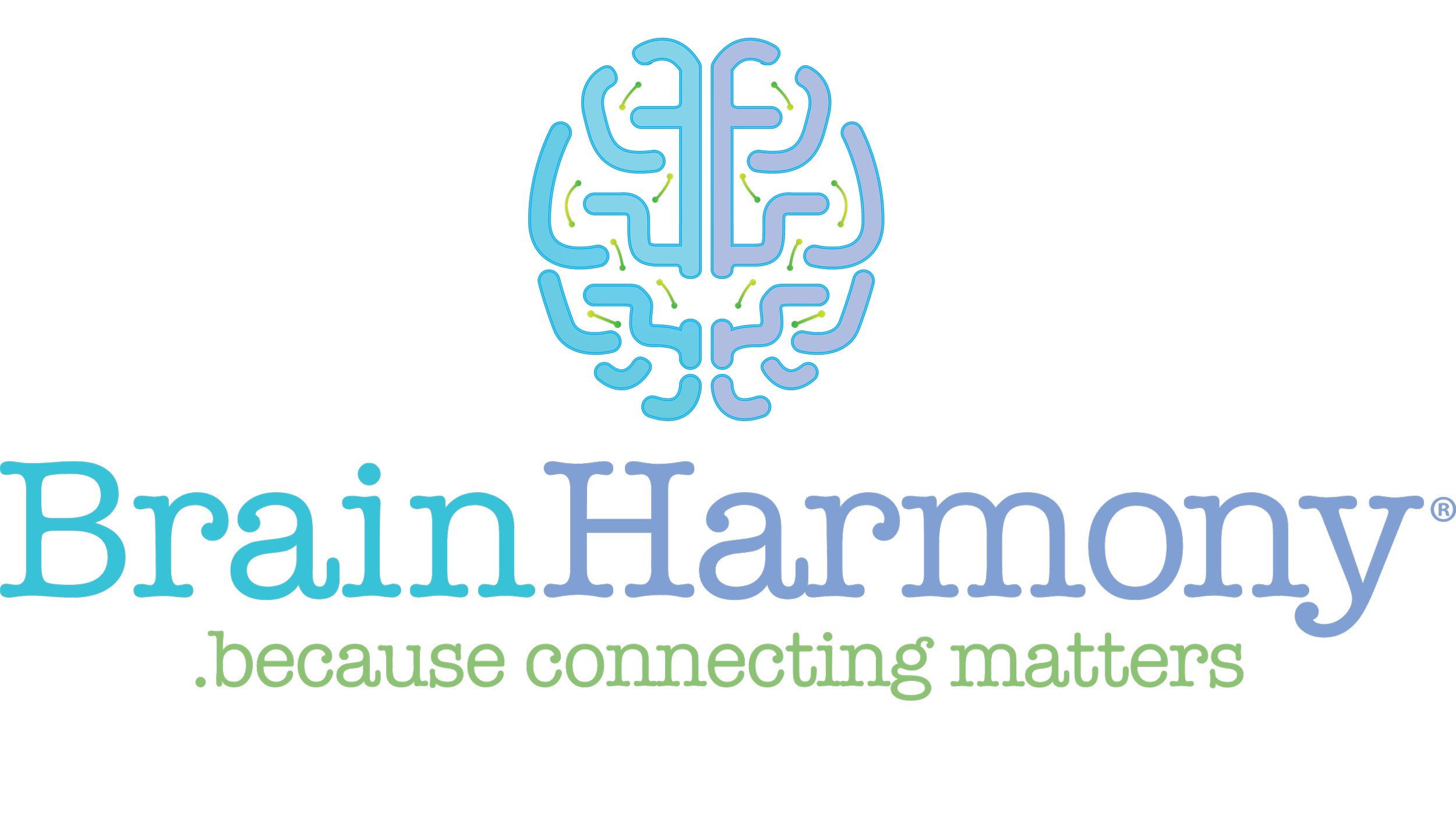The Connection Between Learning Disorders and Auditory Processing
Auditory processing disorder often shows up with related issues that can make APD hard to diagnose. In reality, APD simply comes down to disorganization in the brain, which is why many people who struggle with APD also have learning issues, attention issues, and trouble with memory and behavior. To get to the root of APD and learning disorders, you must get to the root of brain disorganization. Using neuroplasticity, we can rewire efficient auditory processing skills and once accomplished, rewire the brain out of learning disorders.
Auditory processing disorder affects around 2.5 million school-aged children in the United States but is often overlooked or misdiagnosed due to its correlation with other learning disabilities. In fact, according to the this study from Aristotle University of Thessaloniki National Institute of Health, up to 43% of children with learning disabilities also have some type of auditory processing disorder.
This article will discuss what APD is, how it shows up, and the various correlated conditions that are often seen with this type of sensory disorder. We'll then get into the targeted approach that works to heal APD and its related learning disorders at the root.
What Is Auditory Processing Disorder?
Auditory processing disorder is a disruption in the way the brain processes sound. With APD, individuals have a hard time understanding or using auditory information from their environment.
While many people confuse APD with hearing loss, most people with APD actually have normal hearing. Rather, the information from the sounds they hear gets jumbled in the auditory cortex of the brain, and they can't correctly process the sounds and words being communicated to them.
Several auditory skills can be impacted with APD, such as:
Auditory Discrimination (the ability to notice, compare, and distinguish the distinct and separate sounds in words—a skill that is vital for reading).
Auditory Figure-Ground Discrimination (the ability to pick out important sounds from a noisy background).
Auditory Memory (short-term and long-term abilities to recall information presented orally).
Auditory Sequencing (the ability to understand and recall the order of sounds and words).
All of these skills are crucial for the development of the brain and nervous system and impact higher learning processes like spelling, reading, and writing.
Due to the intricate balance that sensory input plays with the development of your nervous system, many people with APD present with other conditions related to development.
Learning Disorders Associated With APD
People with APD often present with a range of other symptoms or conditions due to the root cause of APD, which is neurological disorganization. In the pyramid below, you can see that auditory processing is upstream to other skills such as body awareness and sensory systems. This means that if there are issues with these processes, auditory processing issues can result.
Similarly, per the "auditory language skills" on the pyramid below, you'll see higher learning and behavior; this means that if auditory processing isn't optimal, issues in these areas may present.
This is why many people find that there are learning, emotional, and behavioral issues along with auditory processing challenges.
Some of the most common issues associated with APD include:
● Speech development issues
● Dyslexia
● Attention issues
● Poor memory
● Emotional regulation troubles
● Learning disorders
These conditions often present together because they all stem from the same root cause of brain disorganization.
Speech Delays
Speech issues, for those with normal hearing, can be rooted in faulty wiring throughout the many areas of the brain involved in speech and its production. We know the quality of speech production reflects the quality of the connections in the brain starting with processing auditory input. When input is distorted, then output will be as well.
Dyslexia
Dyslexia is a common condition that's associated with APD due to its root in sensory processing distortion and disorganized connections in the brain. Dyslexia makes it harder for people to identify speech sounds and how they relate to decoding letters and words because of the faulty wiring in the part of the brain that processes language.
More specifically, for people with dyslexia, there is trouble adapting and honing in on one voice at a time. Instead, they take in all the sounds from their environment at once which can be distracting and overwhelming.
Dyslexia also shows up in the same way by processing visual input inefficiently, which further contributes to reading delays and poor comprehension. The more layers of inefficiency, the farther the individual gets from the information they are trying to learn.
Attention Issues
Another condition that's commonly paired with APD is ADD (attention deficit disorder). As the name suggests, people with ADD have trouble with their attention span due to the slower development of the brain's frontal lobe. Without proper frontal lobe development, it can make it harder to process information from the environment, much less try to determine which information is just a distraction and which information needs your attention. This leads to challenges with executive function, concentration, decision-making, and following multiple step directions.
Memory
Research shows that working memory is involved in helping you to segregate where sound is coming from. For people with APD, one of the primary issues is not being able to determine one sound from another, creating more of a muffled mess of noise as opposed to distinct sounds. This is also highly involved in the process of extracting speech from competing noise in the environment.
Therefore, it makes sense that many people with APD also show up with memory issues. In this case, the neurological disorganization that's impacting working-memory likely creates downstream effects on auditory processing.
Emotional Regulation
One of the most common symptoms of any sensory processing disorder is an inability to regulate emotions. When your brain can't sense and organize the stimuli it's receiving from the environment, it can be incredibly overwhelming and lead to all kinds of unwanted behaviors. Taking a look at the pyramid, the "behaviors" box goes above "auditory language skills," indicating that before we can develop optimal behavioral patterns, we have dialed in auditory skills.
If you have a family member with ADP, this may show up as tantrums, anxiety, fear, or an inability to express emotions. Subtle changes in the environment are going to impact people with APD much more than someone without this hypersensitivity. As a result, it may make their emotional outbursts seem overblown -- but in truth, they just don't have the hardwiring to handle the incoming sensory information.
Research shows that sensory processing issues in childhood predict higher anxiety and emotional issues in adulthood due to issues with emotional regulation.
Learning issues
With issues tied to memory, hearing, attention, organization, along with reading and writing, it's no surprise that many people with APD also have learning difficulties. Whether they are characterized as dyslexic, attention-deficit, or simply fall behind in class, children with APD are at a disadvantage scholastically.
Again, the tie that binds all of these conditions together is neurological disorganization at a root level.
Trying to treat any of the above issues directly without addressing the root cause is the definition of the "band-aid" approach to medicine. You may be able to give someone with ADHD medication to attempt to “calm them down,” but that won't address the root sensory issues. The same goes for dyslexia, emotional regulation, and other learning issues.
How Brain Harmony Can Help
At Brain Harmony, we treat APD, learning disorders and speech concerns regularly.
Unlike many traditional approaches, which seek to resolve the auditory issues or learning difficulties with compensatory strategies and repetition of exercises, we take a full-brain-body-approach by targeting the root issues of the challenges. When you try to treat the APD or learning disorders without addressing the foundational imbalances in the nervous system, you'll see moderate changes at best.
We consider the levels of stress and anxiety that result from these conditions. Many people who reach out to us are highly activated and consistently find themselves in sympathetic mode -- fight or flight or even dorsal shut down, with freeze or fold.
That's why our first step in treating any of these conditions is to calm the nervous system through vagal regulation, which enhances your ability to enter parasympathetic mode -- the rest and digest state of your nervous system.
Establishing a foundation of safety is required to open up access to other parts of the brain so we can build the connections we need for efficient communication and function.
One of the most well-researched and powerful tools we've found for toning the vagus nerve is the Safe and Sound Protocol (SSP), which is a listening system designed to stimulate the vagus nerve, resulting in a neurological sense of calm and safety and improved auditory processing.
This program uses specific frequencies layered into the human voices singing in the program. The tiny muscles in the inner ear are exercised by the voices through headphones allowing for the prosodic features of the music to pass through the tympanic membrane and impact the vagus nerve. This provides a dual benefit of calming the nervous system while training the inner ear to process human speech better, at the same time. The cascade of benefits continues as the muscle tone of the inner ear muscles improves so does the clarity of processing, learning, attention and speech.
Once safety is received by the nervous system and the ear muscles trained for words, the next step is neurological organization to further address the root cause of APD and learning disorders.This is achieved through a few different interventions including Integrated Listening Systems (ILS) Focus Programs.
The Integrated Listening Systems (ILS) Focus Unit is a multisensory tool that uses vibration and auditory input to build the neuron connection to specific parts of the brain. By building neural pathways and creating a more organized brain, iLs further improves your ability to learn and process sensory information.
We've seen profound changes in our clients who work through the Brain Harmony protocol with APD, and the research supporting it and APD is equally compelling. In a clinical trial with 29 children with APD, 22 of the 29 children tested in the normal range in all areas of auditory processing after iLs training intervention. What's more, 7 of the children that had been on ADHD medication pre-trial were able to come off of their medication entirely.
These listening programs, with Brain Harmony's bottom-up approach, treat the root cause of auditory processing and learning disorders. Without access to these perspectives and protocols, options for an individual with these conditions is expensive tutoring and compensatory strategies for their disorganized brain. Instead, boundless function is available by rewiring the brain.
Brain Harmony Success Stories
Skye-Nohea's Brain Harmony Success Story
Skye-Nohea's mother first noticed something wrong when she was three and a half years old and had trouble following instructions during her swim lessons. Instead of doing what the instructor had asked, she just sat there “looking blank.” Her mother's first thought was that Skye-Nohea may have hearing loss, but auditory test results were normal.
When Mom asked Skye-Nohea's teachers, they confirmed the odd behavior, explaining that she would sometimes guess, like she didn't understand what was being asked. She then went to an auditory processing center, where she learned that Skye-Nohea had an auditory processing disorder.
Brain Harmony was recommended to Skye-Nohea's mother by another mother of a child with APD. Since working with Brain Harmony’s 5 step plan of care, Skye-Nohea's memory is getting better, her attention span is improving, and she accepts things a lot faster. Mom reports her ability to be resilient after a fight with her brother or after she is told that she can't have something she wants, has significantly improved.
Mom is a witness to the impact of strong auditory processing skills and academic performance as well. “She pays attention better in school and raises her hand to answer questions because now she can!”
Baylie's Brain Harmony Success Story
Baylie had trouble retaining the names of letters and learning the sounds associated with those letters. She also displayed a general clumsiness and had difficulties with hand-eye coordination.
"I was so proud when Baylie's teacher told us that she has vibrant conversation, she is connecting with other children, and she is engaging in the classroom. Your program has been remarkable." - Baylie's Mom
The great news is, Skye Nohea and Baylie's stories are not unique. In fact, we've reached hundreds of people with APD and helped them find their way back into balance. By working through the Brain Harmony program, you or your loved one will be able to restructure the pathways necessary for optimal auditory and learning skills, with results often nothing short of magnificent.
FAVORITES
Our FAVORITES Feature This Week
Our friends at Forbrain give children from Pre-K to high school a helping hand with a patented learning device, so they learn faster and more effectively, by harnessing the power of voice to boost their brain. The device is an excellent complement to regular learning activities both in the classroom and for homework.
Use Code 3B0801150 at checkout to receive 10% off.
If you or a family member are dealing with APD, book a Free Consultation today to learn more.








